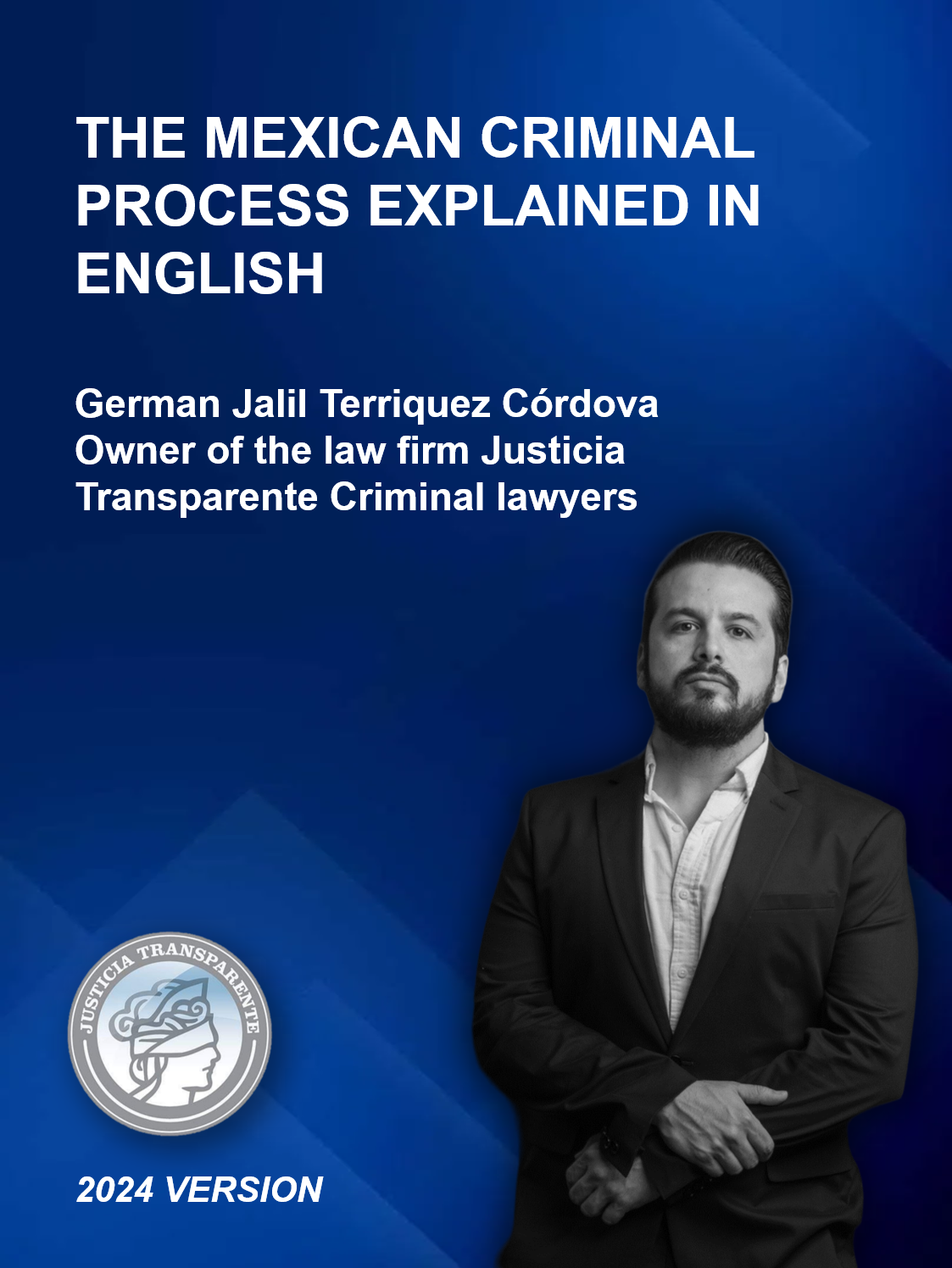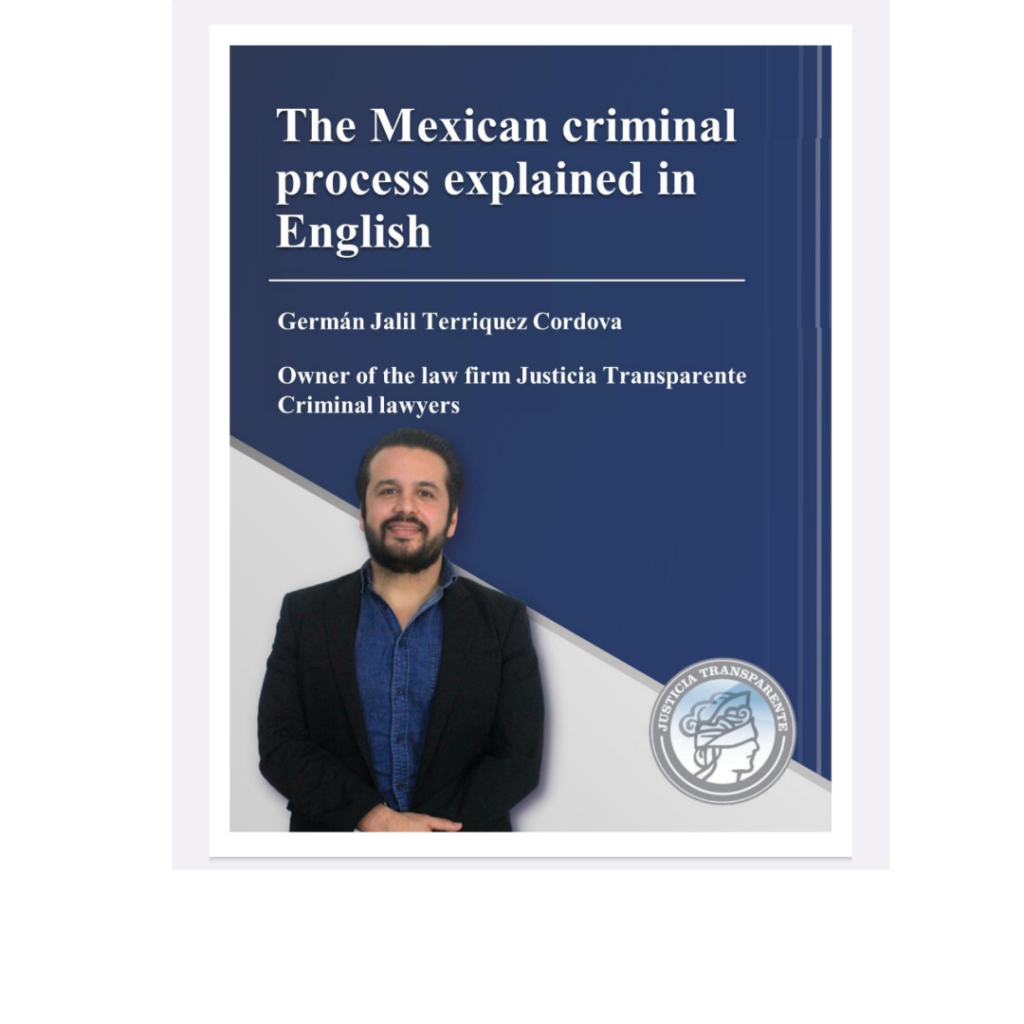Criminal justice process in Mexico Since the implementation of the accusatory penal system in Mexico due to the reforms presented by Congress in 2008, gradually the states of the Mexican Republic and the Federation have been reforming their laws in order to comply with this constitutional obligation and that no later than June 18, 2016 throughout the Mexican territory criminal proceedings are oral and comply with the contradiction, mediation, and in general with the greatest transparency of criminal proceedings.
Certainly this change in the criminal process in Mexico is due to political commitments that the Mexican state had with other countries, mainly the United States of America, who had energetically requested that the criminal processes be more transparent and fairer.
Almost 15 years after having changed the Mexican criminal process, the objectives that the United States government needed to meet have been met: to understand the Mexican criminal process and that it has some elements of the American criminal justice system, which is certainly the most advanced and fair.
However, in professional practice, our law firm has realized that not all American citizens know Mexican criminal laws, on several occasions we have defended Americans who are unaware that their permit to carry weapons in their country is not valid in Mexico, and when crossing the border they are arrested for this crime, which on many occasions when the weapon is for the exclusive use of the Mexican army is investigated as a serious crime and they are imprisoned without knowing the day on which they would recover their freedom
Accused a relative of a crime in Mexico? Do you need to know if it is a crime to bring weapons into Mexico? Do you need to know if it is a crime to bring marijuana into Mexico? The prosecutor is accusing me of having committed a crime that I did not commit? Has your loved one been in jail in Mexico for years?
If you are in one of these situations, hire an online consultation.
This situation led our head of the firm German Terriquez to create this in English explaining the Mexican criminal process in detail, in a simple way, for non-lawyers with the intention that those who plan to enter Mexico learn more about the criminal process and in as far as possible avoid making any mistake that could compromise your freedom.
We will try to explain the criminal process summarizing in the following topics, all these points are in this book that we have made for you:
1. General provisions of criminal justice process (from article 1 to 43):
These articles talk mainly about the purpose of the criminal process, its scope of application, the principles that govern it, the jurisdiction of the courts based on the place and type of criminal act and committed and the rights that the accused and the victim have in the process. criminal process
2. Explanation of how oral hearings are in Mexico (article 43 to 66):
These articles generally It explains what hearings are like in Mexico, where they are held, and particulars that you should know if you find yourself in this situation.
3. Resolutions of the judges (articles 67 to 72):
These articles explain the different types of resolutions generated by the judges and what they mean
4. Collaboration between authorities (judge, public ministry and other authorities, from articles 73 to 81):
These articles essentially talk about the rules of collaboration of authorities, such as requesting information or support from other authorities, including foreign ones, for the purpose of carrying out acts necessary to the criminal process
5. notifications and terms of the process, (from article 82 to 96):
These articles talk about how the parties should be notified and the terms that are available to comply with the rules of the Mexican criminal process)
6. Nullities and coercive measures in criminal proceedings, (from articles 97 to 103):
These articles explain what evidence cannot be taken into account for violating human rights
7. (Parties of the process and their rights and obligations, from article 105 to 136):
These articles talk about the parties to the process, that is, the prosecutor, the judge, the victim, the defendant, among others, and the rights and obligations that the parties have in the process
8. ways of presenting the accused before the authority, judge or prosecutor, (141 al 152 ):
These articles are of special importance since they establish how the arrested can be presented before the authority, from an arrest at the time of committing the crime or an order of arrest issued by a judge
9. Precautionary measures in criminal proceedings (articles 153 to 172):
These articles are of special importance since they establish the security measures for the criminal proceedings that the judge will impose to guarantee that the defendant attends the proceedings, these measures are, for example, going to sign, pretrial detention, set a guarantee, among others.
10. Investigation stage (212 to 306):
These articles talk about the investigation stage of the criminal process, how investigations for criminal acts begin, what are the investigation techniques and the investigation acts that can be carried out during the process
11. Initial hearing (from article 307 to 333)
These articles talk about the first hearing before the judge that will take place, in which it will be discussed whether the person was arrested in accordance with the law and if there is evidence enough to take the criminal process before the judge.
12. Middle stage (334 to 347)
These articles speak of the intermediate stage of the criminal process, which is intended to provide the evidence that will be carried out in court and, on the other hand, those that will not be admitted
13. Trial stage (articles 348 to 413)
These articles explain the trial stage, how it is carried out, how the interrogation, cross-examination, incorporation of evidence and how the trial court should decide.
The Mexican criminal process explained in English



